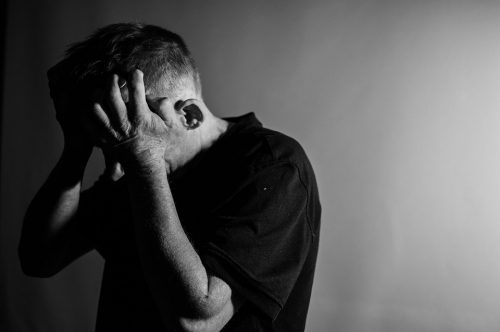
Source: pixabay.com
Imagine your day to start like this:
- Consuming at least an hour of your day (or even longer) just to make sure that the lights are off by repetitively checking on them.
- Rubbing alcohol onto your hands almost every minute to get rid of germs (so you thought).
- Taking several shower or bath times in a day, feeling that you are all dirty and need cleaning.
- Rotating a plate seven times before taking the first bite of your meal.
All the above are representations of a person with obsessive-compulsive disorder (OCD). “Obsessive compulsive disorder or OCD can be characterized by repetitive, unnecessary activities, or compulsions (like lining up dishes over and over so they look “perfect.”)” according to clinical psychologist Robert A. Lavine Ph.D. A person with OCD finds no pleasure in doing things repeatedly, an only momentary relief from the anxiety that occurs. In fact, they hate their behavior but cannot do otherwise. The moment they stop the routine, anxiety heightens.
What causes it?
Having an unknown etiology, OCD can be caused by several factors such as genetics, brain structure anomaly and brain malfunctioning that may trigger anxiety-producing compulsive behavior. The behavior can also result from a social environment where the person experiences trauma. Strict parental control is the most well-known theory of OCD occurring during the toddler years of the child. Freud explained that power and autonomy govern this age. Toddlers love to experience being in control of the situation. At the same time, this age is predominant in the toilet training period. When parents are strict concerning their elimination process, Freud conceptualized an adult life full of stringent choices and OCD behavior.
It is diagnosed by about age 19 and is seen most in boys than girls. Late diagnosis can also happen at the age of 35 years old.

Source: pixabay.com
What to do?
People will notice at first that the person is very clean or meticulous about organizing things. However, the sense of over cleanliness and compulsion to perform specific activities that do not even fit the present situation can be considered pathological and psychologically unstable.
If behaviors start to affect relationships, work, and school activities, it is essential to see a mental health professional obtain a proper diagnosis. Once diagnosed, OCD can be treated using medication and psychotherapy or both.
“The response to treatment of patients with OCD is also varied and, I think, unpredictable,” according to psychiatrist Fredric Neuman M.D. Counseling can be a great help in overcoming OCD, as this may involve working through a therapy program to control obsession and associated rituals that marks the disorder. Cognitive Behavior Therapy (CBT) aims to relieve intrusive thoughts and compulsive behaviors by disentangling anxiety from reality and fact. This therapy will teach a person with OCD how to think, behave, and react to the situations that cause distress without the burden of intrusive thoughts and compulsion to do specific tasks. The benefits of counseling and psychotherapy for OCD are as follows:
- It helps the person understand their condition – the leading causes of OCD, and why they are behaving as such.
- Develops self-awareness and fully understand one’s thoughts, feelings, and behaviors that sustain the cycle of OCD.
- Increase insight into what triggers the reaction and enhance self-esteem.
- Develops efficient and positive coping strategies to replace compulsive behaviors.
There is no better way of overcoming OCD than seeking mental health consultations. “If you feel completely lost, then one good first step is to learn more about the disorder” – Monnica T Williams Ph.D. When one recognizes the problem at hand, the treatment process will just be easy, and early recovery can be an assurance.
